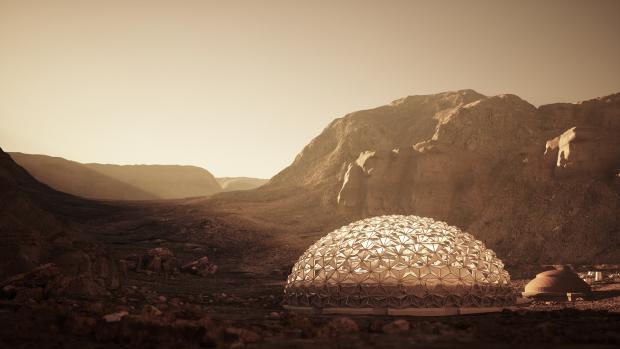
Breaking News
 Sunday FULL SHOW: Newly Released & Verified Epstein Files Confirm Globalists Engaged...
Sunday FULL SHOW: Newly Released & Verified Epstein Files Confirm Globalists Engaged...
 Fans Bash Bad Bunny's 'Boring' Super Bowl Halftime Show, Slam Spanish Language Performan
Fans Bash Bad Bunny's 'Boring' Super Bowl Halftime Show, Slam Spanish Language Performan
 Trump Admin Refuses To Comply With Immigration Court Order
Trump Admin Refuses To Comply With Immigration Court Order
 U.S. Government Takes Control of $400M in Bitcoin, Assets Tied to Helix Mixer
U.S. Government Takes Control of $400M in Bitcoin, Assets Tied to Helix Mixer
Top Tech News
 SpaceX Authorized to Increase High Speed Internet Download Speeds 5X Through 2026
SpaceX Authorized to Increase High Speed Internet Download Speeds 5X Through 2026
 Space AI is the Key to the Technological Singularity
Space AI is the Key to the Technological Singularity
 Velocitor X-1 eVTOL could be beating the traffic in just a year
Velocitor X-1 eVTOL could be beating the traffic in just a year
 Starlink smasher? China claims world's best high-powered microwave weapon
Starlink smasher? China claims world's best high-powered microwave weapon
 Wood scraps turn 'useless' desert sand into concrete
Wood scraps turn 'useless' desert sand into concrete
 Let's Do a Detailed Review of Zorin -- Is This Good for Ex-Windows Users?
Let's Do a Detailed Review of Zorin -- Is This Good for Ex-Windows Users?
 The World's First Sodium-Ion Battery EV Is A Winter Range Monster
The World's First Sodium-Ion Battery EV Is A Winter Range Monster
 China's CATL 5C Battery Breakthrough will Make Most Combustion Engine Vehicles OBSOLETE
China's CATL 5C Battery Breakthrough will Make Most Combustion Engine Vehicles OBSOLETE
 Study Shows Vaporizing E-Waste Makes it Easy to Recover Precious Metals at 13-Times Lower Costs
Study Shows Vaporizing E-Waste Makes it Easy to Recover Precious Metals at 13-Times Lower Costs
Nüwa seeks to become first sustainable city on Mars with 1 million residents

Elon Musk plans to have a city on Mars by 2050. But that's a little easier said than done.
Human survival on another planet, especially one as environmentally hostile as Mars, depends on finding solutions to four key factors: infrastructure, sustainability, shelter and life support, according to Gisela Detrell, an aerospace engineer at Germany's University of Stuttgart.
"There are several issues that we have to face on Mars," Detrell said, "from radiation to providing all the food and oxygen that the people living there would need -- but also looking at how to use the resources on Mars, starting from where would our city be located or which different locations we could have."
Detrell is part of an international team of scientists and academics, architecture firm ABIBOO Studio and the public-private Sustainable Offworld Network (SONet) community that believes they've cracked the code. They've submitted plans to the Mars Society to build Nüwa, the first proposed city for Mars.
With the current Mars missions (UAE's Hope Probe, China's Tianwen-1 mission's rover and NASA's Perseverance rover) researching the potential for life on the red planet and with commercial space travel on the horizon, an experimental city on Mars seems to be the next step. Now What?
Nüwa, named for the Chinese mythological goddess who smelted together colored stones to patch up the sky, would be housed inside a sheer rock face at Tempe Mensa, Mars, where the city's 1 million residents would be protected from damaging cosmic and solar radiation.

 Smart dust technology...
Smart dust technology...

